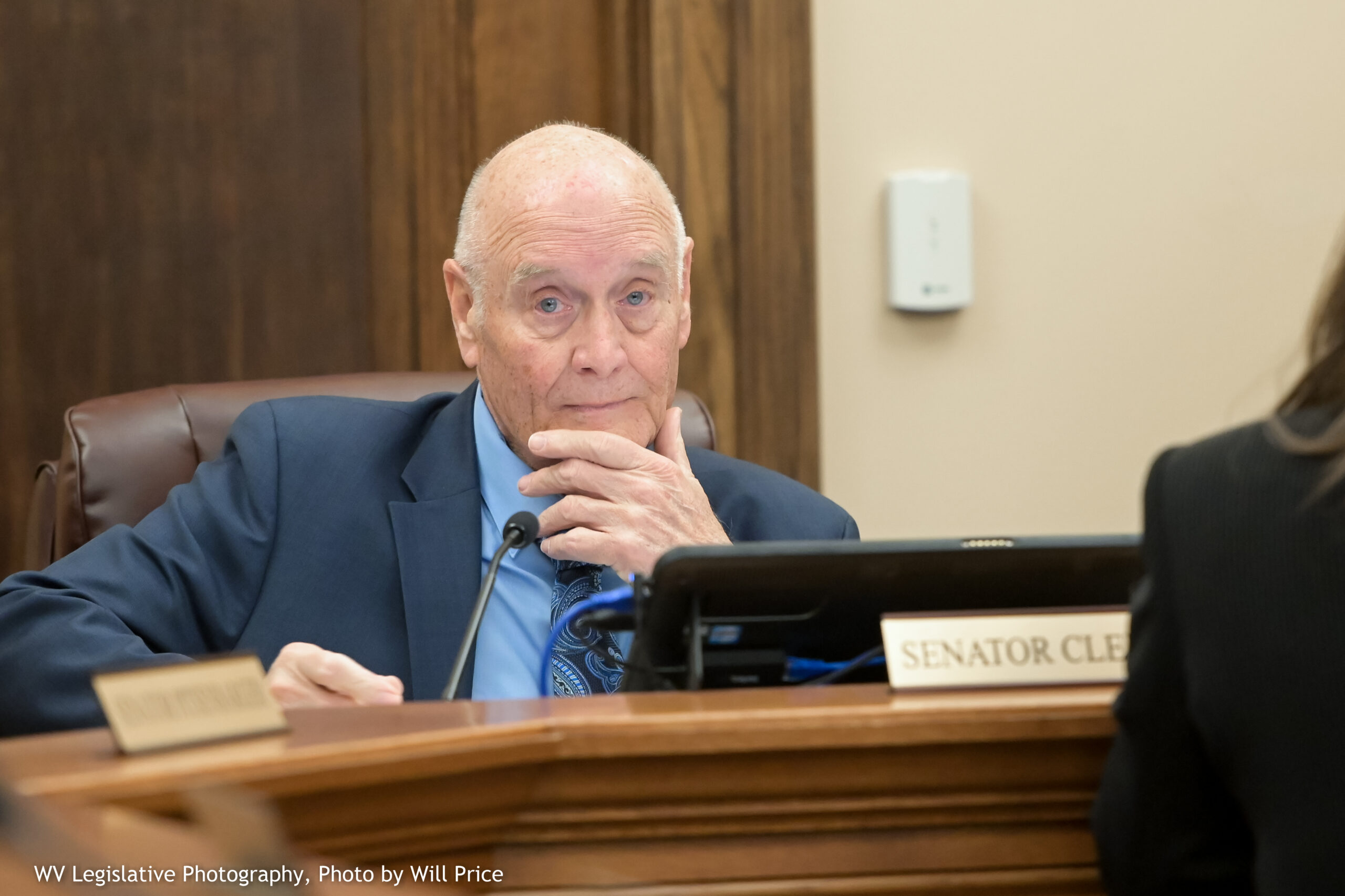MORGANTOWN — The Senate Transportation and Infrastructure Committee put the brakes – temporarily – on a multipart bill meant to boost secondary roads maintenance. Testimony from the Division of Highways suggested the bill may be counterproductive, so the committee chair wants to hear from stakeholders before moving forward.
The committee also killed a bill to lower the additional registration fee for hybrid vehicles after learning the bill might cut into road bond funding.
The secondary roads bill is SB 162 and contains a patchwork of previous bills
It calls for the state auditor to set up a website where the public can track DOH revenue and expenditures for road repairs and maintenance.
It creates a Special Road Repair Fund provided with $80 million for roads not eligible for federal funds.

It also creates an Enhanced Road Repair and Maintenance Program, where DOH county supervisors consult with local elected officials to prepare a priority list of projects. It would require DOH to contract private firms for repair and maintenance projects if 70 percent of the core maintenance projects from the prior year weren’t completed.
It establishes a funding formula to allocate Special Road Repair Fund dollars, which are to be used to hire the private contractors.
Transportation Secretary Byrd White told the committee that DOH opposes the bill for several reasons.
One is that DOH has had bad experiences with private contractors. They do OK with pothole patching but cost 10% more than in-house. But their ditching work has been below standards and cost five times more than in-house.
Sen. Bob Beach, D-Monongalia, suggested DOH look into private contracts just for snow removal, to keep the roads open.
Deputy Highways Commissioner Jimmy Wriston responded that DOH has been addressing its manpower shortage and has nearly 5,200 employees now. There’s no longer an overall manpower issue, but certain places still have a shortage. He agreed to assemble a report on contracting out snow removal, examining other states’ experiences.
Senators commented that they get a lot of complaints about poor road maintenance. They wanted to know how DOH is doing with the 70% spending threshold districts are supposed to meet.
White said, “Our metric is accomplishment not expenditures.” They’ve posted on their website their maintenance goals and what they’ve accomplished. They’re preparing to post their 2020 plan.
He cited ditching as an example of success. DH’s goal, he said, is to ditch a road once every three years. In the last nine months, they’ve ditched 34% of the roads. “Looking at that, we are ahead of what we think is a reasonable measure.”
The funding formula, he said, would limit DOH’s flexibility to respond to needs where and when they arise. The Enhanced Road Repair and Maintenance Program would tie up Road Fund money to use on private contractors who cost more to accomplish less.
Beach agreed that performance is right measure. But, he said, the people at home aren’t seeing the progress White described. “That’s what leads to legislation like this.”
Committee chair Charles Clements, R-Wetzel, stopped discussion and said he’s laying over the bill in order to hold a stakeholder meeting about it.
Hybrid fees
SB 495 is the hybrid bill. Jointly sponsored by Beach and Clements, it would reduce the additional registration fee on hybrids form $100 to $35.
Adam Holley, deputy Division of Motor Vehicles commissioner, referred to a fiscal note with the bill that says it would reduce DMV annual revenue by $705,900 – revenue devoted to pay Roads to Prosperity bond debt. “It will put a hole in the Road Fund.”
Holley reminded the senators that this fee was established in 2017 legislation as part of the fee hike package to support the Roads to Prosperity bond payment.
Holley and Beach discussed where the additional fee – above the standard registration fee – for hybrids, electric and hydrogen-fueled cars came from. These cars use less or no gasoline, so they don’t pay as much or any motor fuel tax that supports the Road Fund. The additional fees were created so those vehicles would contribute their share to roadwork – “skin in the game.”
Clements pointed out that hybrids in West Virginia use more fuel than those in other states, from tooling up and down all the hills. The batteries only serve them in in-town traffic.
After the discussion, Clements put the bill up for a voice vote and it died.
Tweet David Beard @dbeardtdp Email dbeard@dominionpost.com




